Learning about the “birds and the bees” is a natural part of growing up, and everyone learns the ins and outs a little differently. But, there is often a debate on what should be taught in schools and what should (and usually shouldn’t) be included in the curriculum. For much of the country, that means not including topics on LGBT sex education, which includes same-sex relationships and same-sex intercourse. At Bespoke Surgical, we are committed to providing advocacy and education to the LGBTQ+ community. Too often there aren’t any available resources for younger members of the community to receive LGBT sex ed, or simply the wrong information is being taught.
With some of those issues in mind, we decided to conduct a survey to find out where and how people of different sexual identities and genders learned their information. Using an online survey, we asked over 1000 Americans of all ages a variety of questions on their sex ed experiences as well as what was taught.
Our Findings
One of the first statistics that stuck out to us was that 75% of people said their sex ed class didn’t discuss same-sex relationships or intercourse. Unfortunately, this isn’t as surprising when you consider that only 12 states require discussion of sexual identity.
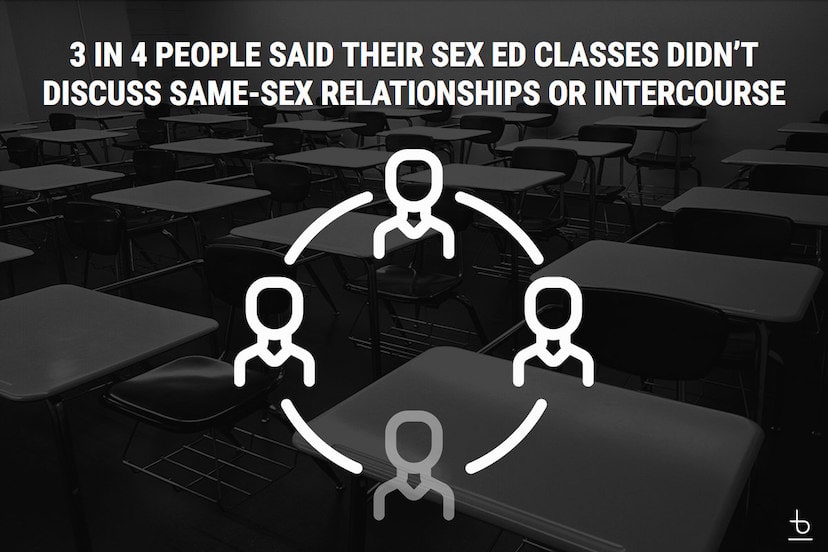
When looking at the data by sexual identity, we found some of our most interesting results. Bisexual and homosexual respondents were nearly equal at 64% and 65% respectively on inclusion of same-sex topics. However, 79% of heterosexual respondents said their sex ed classes talked about those topics. This begs the question, do heterosexual people believe their sex ed classes were inclusive when in reality, they may have only had a cursory mention of same-sex relationships? To have such a stark difference in responses indicates that there may be more than meets the eye.
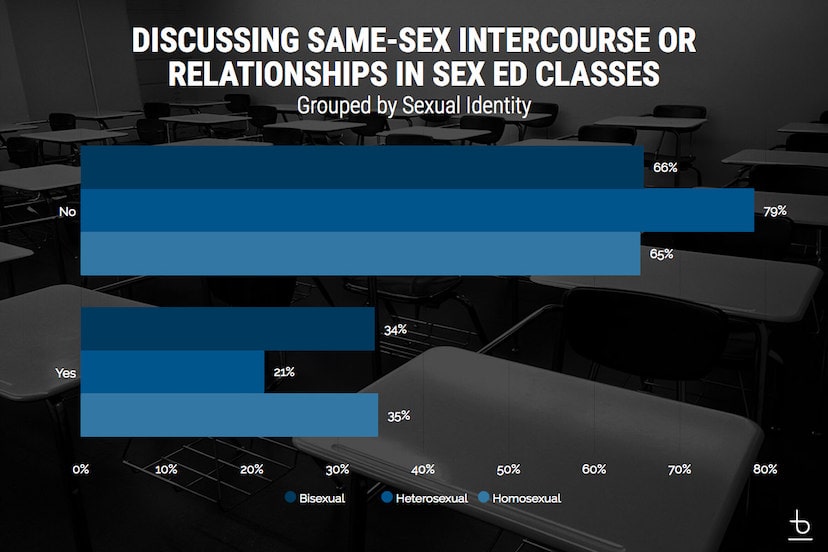
When analyzing the data by region, we found that overall, the statistics were fairly similar for all four regions. Midwest respondents were the least likely to talk about same-sex relationships or intercourse at 68%. The west was the most likely, but 62% of respondents still said they didn’t cover it.
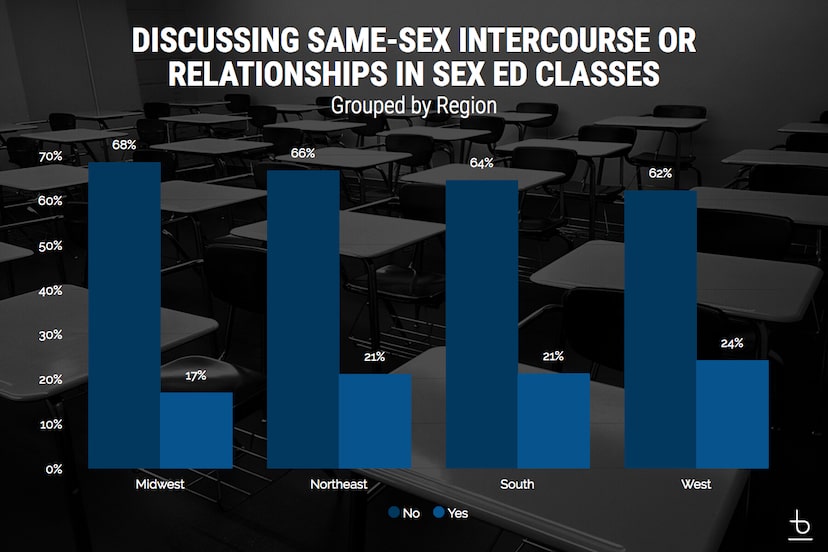
Next, we asked respondents how comprehensive they felt their sex ed classes were. Somewhat comprehensive was the most common response at ~41%. Interestingly, mostly comprehensive and not comprehensive had nearly the same response rate at ~22% and 21% respectively. 14.5% of people said they didn’t have sex ed classes in school.
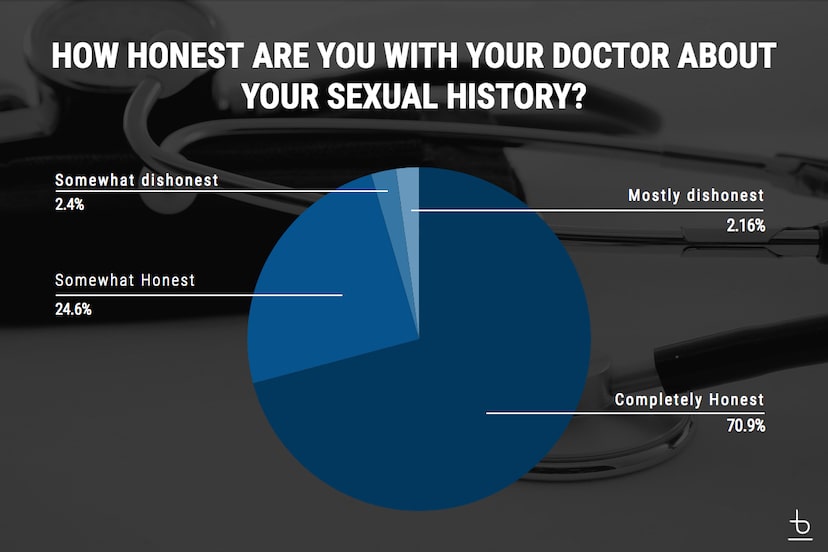
Cross referencing this question with the previous one on inclusion of same-sex topics, we found an interesting trend. Those who did have classes that talked about same-sex relationships or intercourse were more likely to say that their classes were more comprehensive.
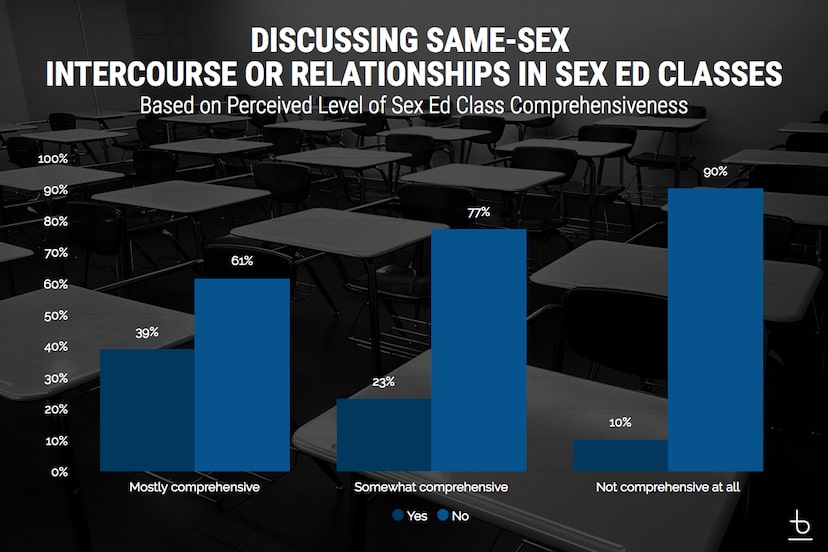
Finally, we asked about the main source of people’s sexual education. Looking at the overall data, school was the most common response at just under 24%. Friends (19%) and trial and error (~16%) were second and third. Doctors came in at just over 4%.
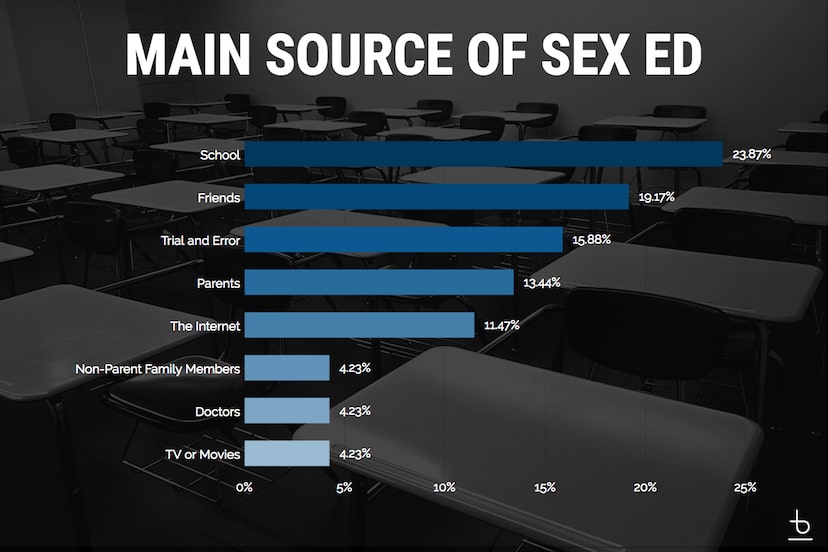
Analyzing the results by sexual identity, we found some consistencies with the overall data, but also some surprising stats. School was still the most common response for all identities, but after that things started to vary. Bisexual respondents were much less likely to get their education from friends and much more likely to get it from trial and error. This raises the question of, “Are bisexual people comfortable discussing their sexuality with their peers?” The B is often the forgotten letter in LGBTQ+, and these results seem to reinforce that. It could be that bisexual individuals are more likely to just try and figure things out themselves rather than ask their friends.
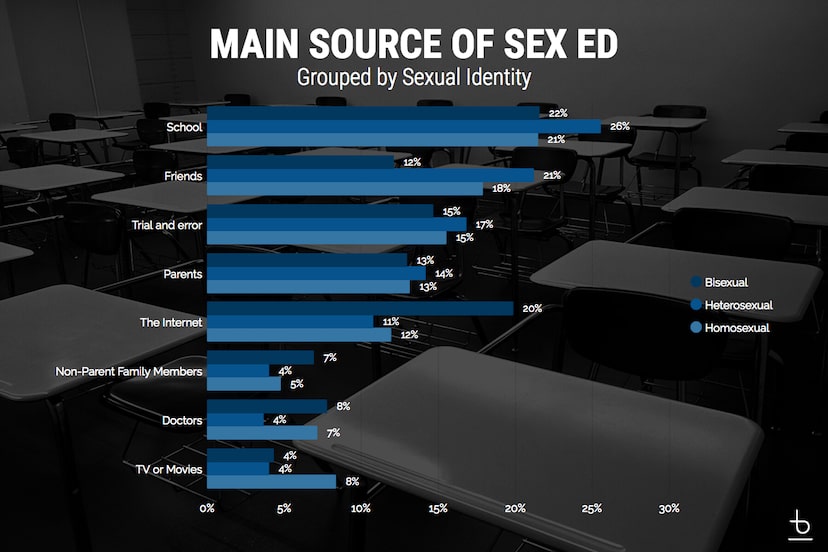
Summary
Overall, we found that sex ed, both currently and historically, is generally not inclusive of LGBTQ+ topics and does not provide the proper education. Our survey showed that most people did not learn about LGBTQ+ topics, and one out of five people said their sex ed on the whole was not comprehensive. Everyone learns about sex in different ways, but it is telling that nearly the same amount of people get most of their sex ed from friends as they do in school. School should be a place where learning and asking questions, even about topics like sex, should be encouraged.
While civil rights for the LGBTQ+ have made great strides in recent years, it is clear that America’s education system has its shortcomings when it comes to LGBT sex education, including same-sex topics and issues. The fact that 75% of respondents in our survey said those topics were not covered in school is telling.
While we do believe our school systems should teach their students about safe sex practices – whether orally, vaginally, or anally, at the very least, they must make it easy for students to seek out the information they wish to learn about by providing a system inclusive of both heterosexual and LGBT issues.
At Bespoke Surgical, we are paving the way by creating engaging content through our social media channels that is both accurate and relatable. Combined with editorial pieces for publishers who are already addressing these issues head on, our goal is to establish ourselves as an authority in the space. Hopefully, by bringing these issues to light, we can all help make changes so everyone can get the education they need and deserve.







